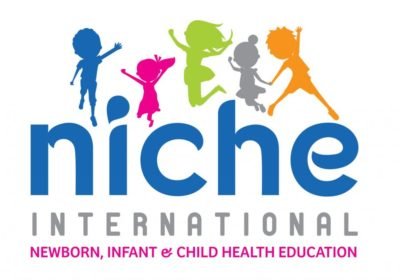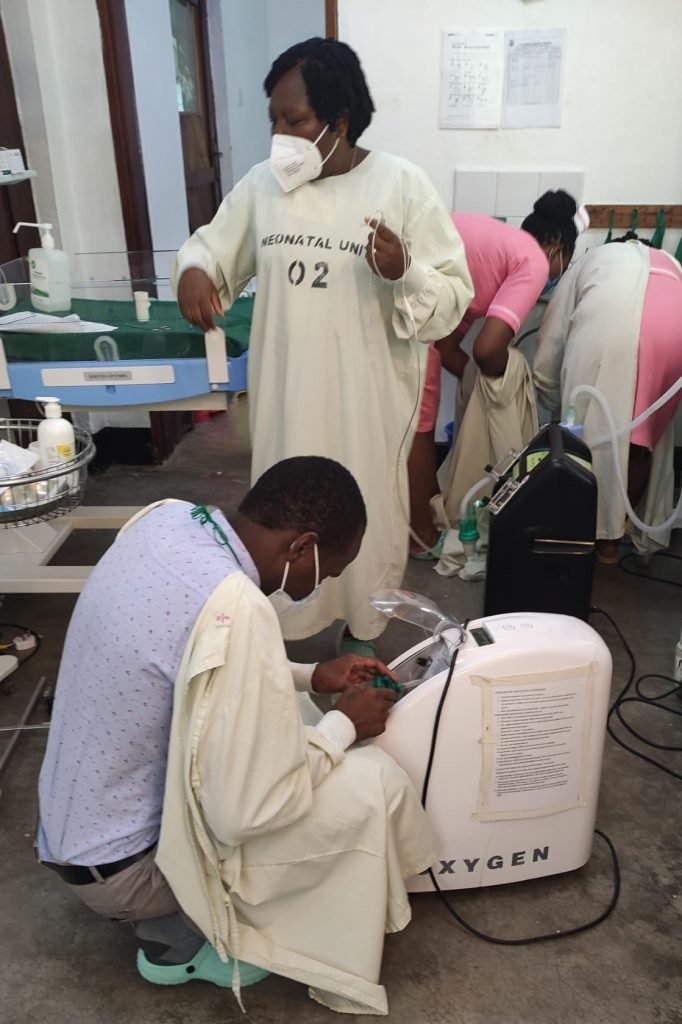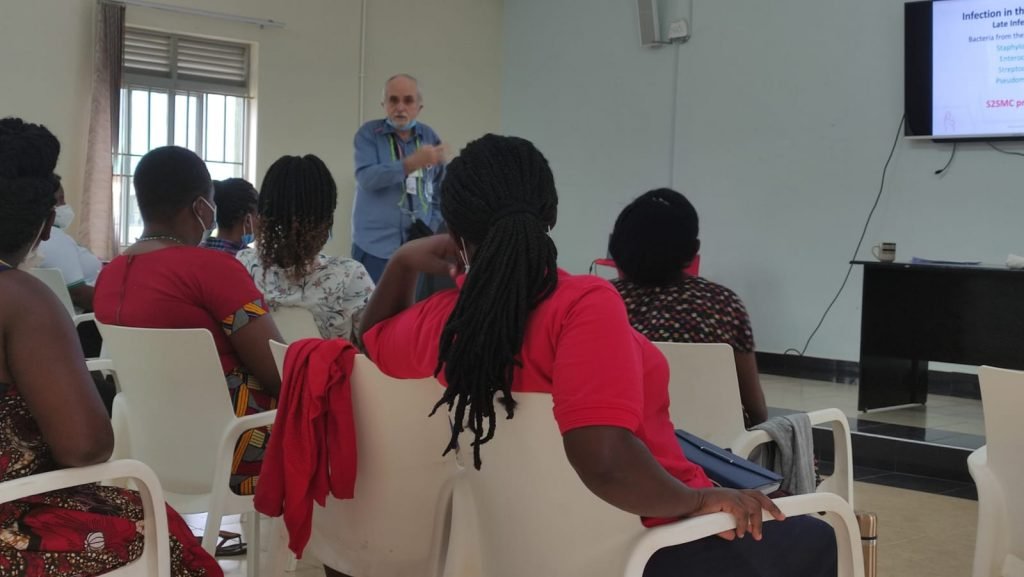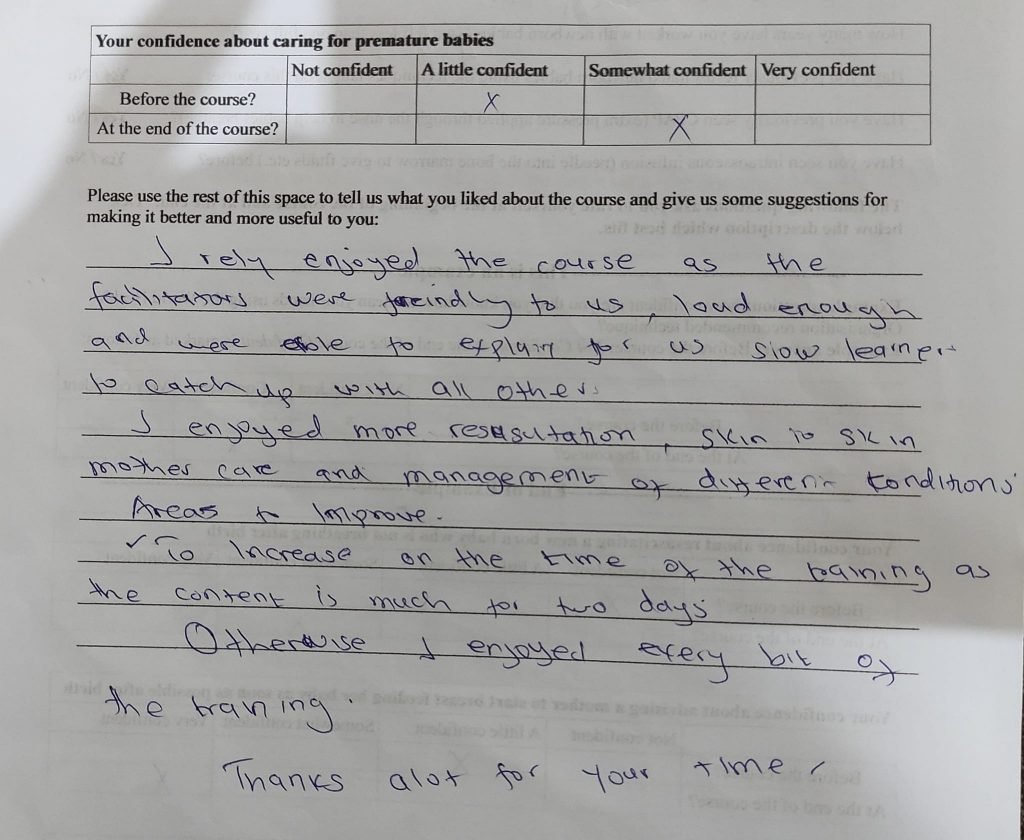
Keeping babies warm is one of the things that reduce neonatal mortality. We promote it strongly throughout the course. It also promotes breastfeeding, reduces the risk of hospital-acquired infection, is important for bonding and leads to faster growth.


When we went to the neonatal unit initially, there were 5 babies (including a set of twins) between 33 and 35 weeks in incubators or being held by their mothers in piles of blankets. The doctor asked for help because none of them were putting on weight. Grace went to work…

All 5 had been discharged by the end of our week in Bwindi, all putting on weight. Well done to the nurses for being early adopters of KMC in Bwindi and for seeing the benefits straight away.
On day 3 of our visit, we noticed these pictures that had been put up in the anteroom to the neonatal unit where the mothers were waiting to see their babies.

On day 5, we did the round with the mothers actually present in the neonatal unit – the remaining 2 babies both skin to skin.




















